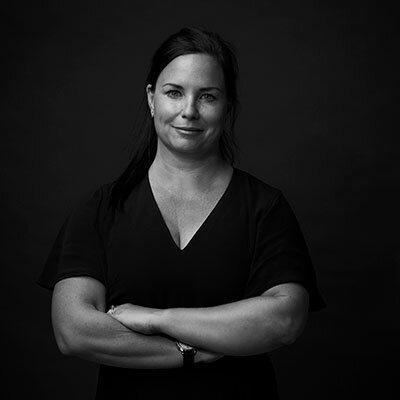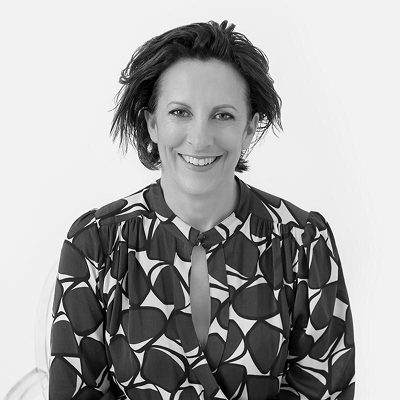
ASKING FOR A FRIEND
How do I deal with a colleague who is treating me badly?
ASKING FOR A FRIEND - QUESTION
When a colleague treats you badly, it's tough enough. When that colleague is also supposed to be your friend, it becomes a masterclass in workplace complexity. This honest discussion unpacks the messy reality of dual relationships, professional competition disguised as friendship, and the art of having difficult conversations without destroying everything. Industry leaders Jasmin Bedir and mental health expert Martine Beaumont share practical strategies for dealing with colleagues who treat you badly, from recognising toxic dynamics to having those crucial "what's your thinking?" conversations. Essential reading for anyone navigating the tricky waters where personal and professional relationships collide.
Working alongside someone who treats you badly is like being stuck in a lift with a cat that’s decided you’re its mortal enemy — uncomfortable, draining, and hard to escape without some hissy moments. When that person is also supposed to be your friend? It’s a whole other level of complicated.
This question came up for a creative who’s watching their so-called friend dismiss them at work, steal promised projects, and chip away at their confidence (and income). Jasmin Bedir — CEO of Innocean Australia and founder of Fckthecupcakes — and Martine Beaumont — psychotherapist and workplace wellbeing coach at Select Wellness — joined host Andy Wright (Founder of Never Not Creative and CEO of Streamtime) to unpack what you can do when work and friendship get painfully tangled.
The friendship factor: when personal meets professional
Jasmin doesn’t sugar-coat it: "Someone that affects your mental health in the workplace and you consider them a friend is already, you know, like sort of I've got a little bit of an alarm bell there."
Friendship at work is a gift — but it should never cost you your wellbeing. "As we grow older, I'm really quite selective about who I call a friend these days, and you know I would say my advice is always rather a few and some good ones that you actually have these conversations with."
True friends don’t leave you out in the cold when your pay or sanity’s on the line.
Spotting what’s really going on
Jasmin calls out what might be under the surface: "This sounds like there's some competition involved which also means there's some sort of insecurity about the picking order and the company involved, so this all sounds really a little bit vulnerable, bit toxic, probably not really healthy."
When your “mate” is undermining you, it’s worth asking — is this about you, or about their own insecurities?
Dual relationships are tricky — and that’s normal
Martine brings her therapist’s lens to the reality of wearing two hats: "Those dual relationships are always so hard to manage and particularly where you've got differences in sort of hierarchy."
When someone is your friend and has the power to affect your work, things can get messy fast. Her advice? Be upfront about it: "Whenever you've got a dual relationship it's definitely worth sitting down and acknowledging the dual relationship saying 'Okay how do we manage this? How do we risk manage this?'"
Ideally you’d do this before it all goes pear-shaped — but it’s never too late to draw clearer lines.
The fear that makes people robotic
Martine explains why your “friend” might be acting like a stone wall instead of a human: "One of the biggest risks is if you've got a dual relationship with someone who you also are going to be having like accountability conversations with... often they switch off their humanity because they're so scared and they're so wary of upsetting someone, it's almost like they switch off their humanity and become almost sort of a bit robotic and corporate."
It’s not an excuse — but it helps explain why they can feel so cold.
How to actually have the conversation
Martine suggests swapping confrontation for curiosity: "What's your thinking around this current distribution of work?"She calls it her “favourite go-to phrase instead of what the hell are you doing.”
Andy agrees, adding that getting to the truth is about showing how you feel — not just pointing fingers: "There might actually be a perception gap here which is like if I bring up the fact that you took a bunch of work away from me that's going to destroy our friendship, but if I say 'Hey you know I noticed that you took this work off me and that made me feel like this and I was wondering if there's another way of redistributing that.'"
Make it about you — not an attack
It sounds counterintuitive, but leading with how you feel can help: "It becomes a kind of... hey this is how I feel, it's not about you, it's like this is actually just about how I feel," says Andy.
If they really care, they might surprise you: "If they are a friend even close to like not maybe not the best friend, they'll probably turn around and go 'Oh my god I didn't, you know, I didn't want to make you feel like that or perhaps you said something the other day and so I wanted to take a load off you.'"
Remember: the truth is rarely black and white
Andy sums it up: "Two things can be true at once, right, like it's or or 10 things can be true at once depending on how many people you've got in the room."
They might care about you and feel insecure. They might be competitive and genuinely think they’re helping. Humans are messy like that.
Know when to draw the line
Jasmin leaves you with the big picture: "At the end of the day if there's a job involved and a salary and an income and this is clearly also very therefore very important, I would say maybe consider what's the most important bit for that person."
Sometimes you have to put the job first — and dial back the friendship if it’s doing more harm than good. Real friends don’t put your income at risk.
Move forward with boundaries and dignity
If you’re dealing with a colleague who treats you badly — especially one wearing a “friend” badge — remember you deserve better. Get curious. Talk about how it makes you feel. Stay open to what might really be going on. But don’t be afraid to protect yourself if the cat claws come out.
Your mental health, your work and your self-worth matter more than a one-sided friendship ever will.
our guests
Industry Leader

Jasmin Bedir
Innocean
Mental Health Expert

Martine Beaumont
Select Wellness
Host

